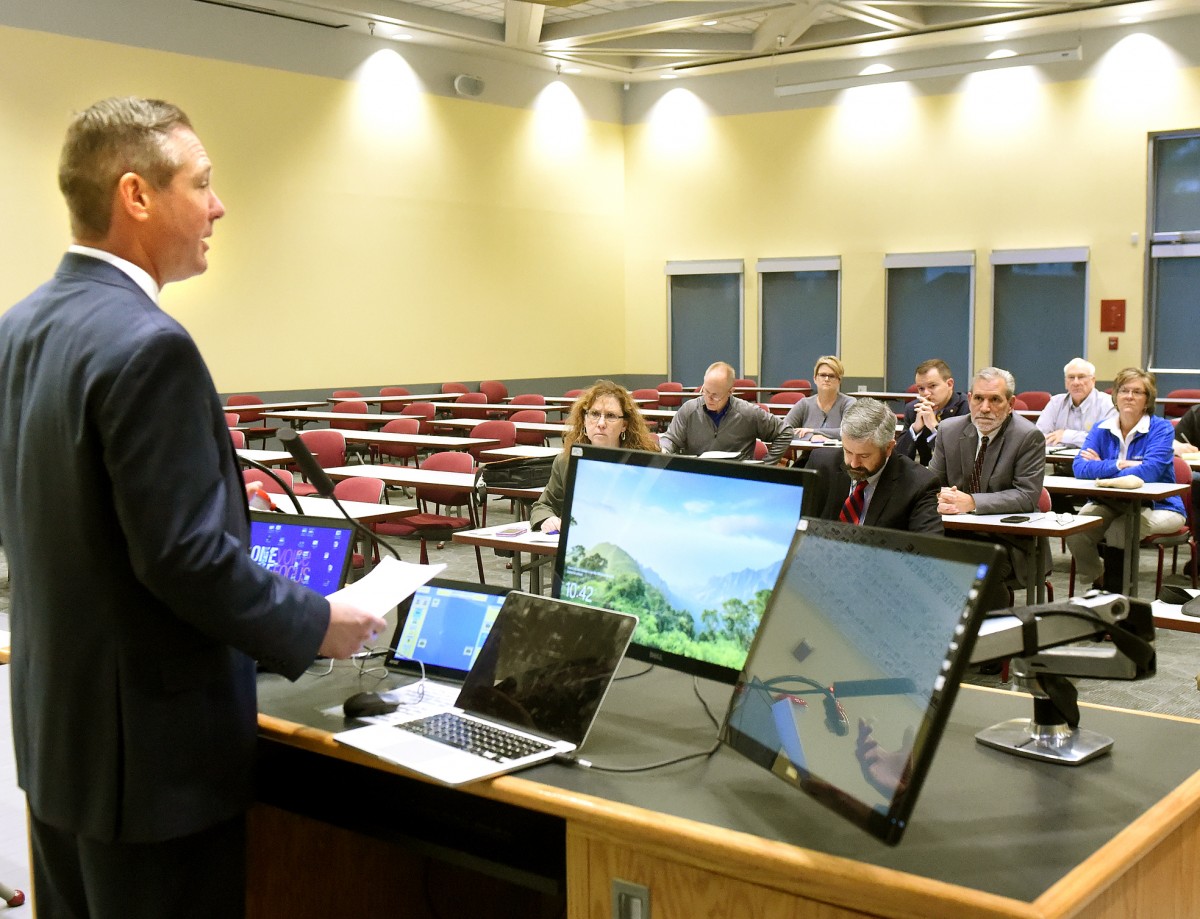MORGANTOWN — Bioscience is a rapidly growing industry in West Virginia, Bryan Brown, executive director of the Bioscience Association of West Virginia, said Friday at the state Bioscience Innovation and Economic Impact Forum.
The goal of the forum was to connect bioscientists with policymakers and the general public to talk about the economic impact the industry has in West Virginia, Richard Giersch, director of the WVU Health Sciences Innovation Center, said.
“I want to tell the story about how investment into science is producing results,” he said.
Delegate Joe Statler said the conference showcased a lot of startup bioscience companies.
He said he was invited to the event and decided to attend because he likes to keep on top of what’s going on, and as a representative he needs to listen to know how he can help.
One type of help Statler said he might be able to provide was if any regulations need to be looked at or tweaked.
Bioscience in West Virginia is growing well above the national average, according to a study by the Biotechnology Innovation Organization, Brown said. Employment in the industry grew 14 percent in West Virginia from 2014 to 2016, far beyond the 4.4 percent national average.
There are now almost 8,000 bioscience jobs in the state with more than 22,000 jobs as a result of the industry’s impact, Brown said.
In that same time period, funding from the National Institute of Health to research institutions in West Virginia grew from $19 million in 2014 to $28 million in 2016.
“We’re so fortunate to have WVU in our backyard,” Statler said.
Research from WVU has turned into a number of businesses, including Valtari Bio, where Giersch is CEO.
The company has raised $2 million in funding and is working to develop a blood test to improve stroke diagnosis, Giersch said.
Valtari has clinical trials in Austin, Texas, he said.
Tweet Will Dean @WillDean_DP; wdean@domininionpost.com




